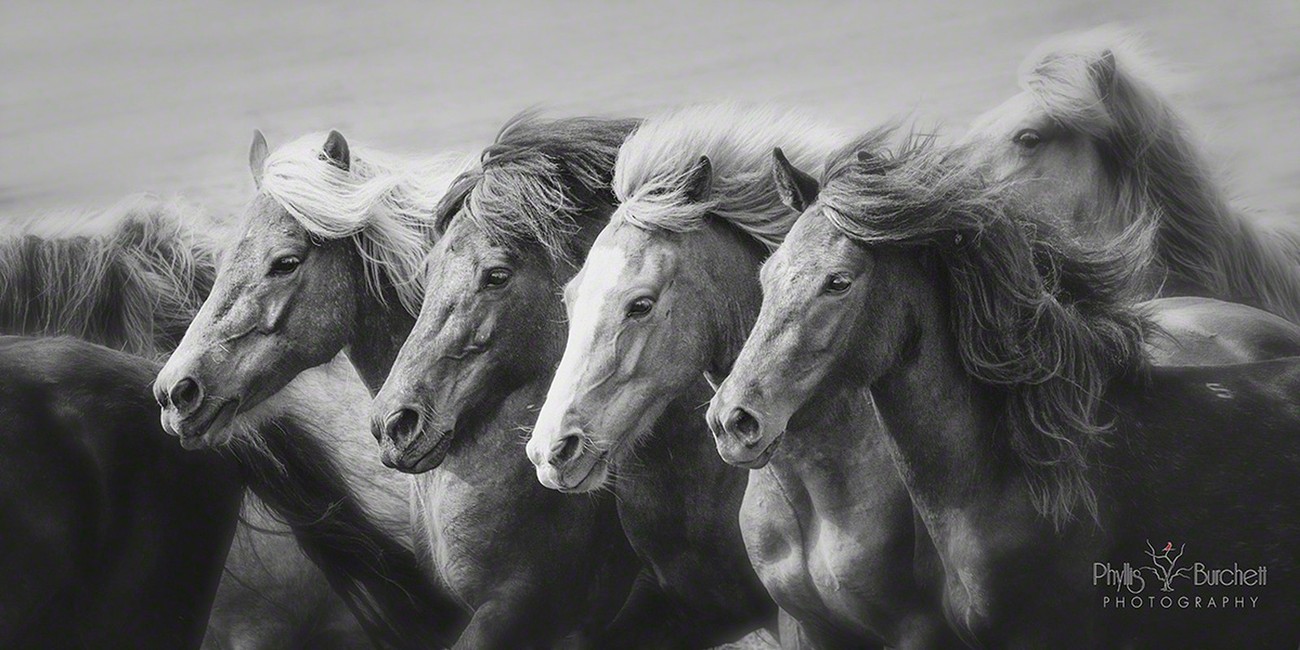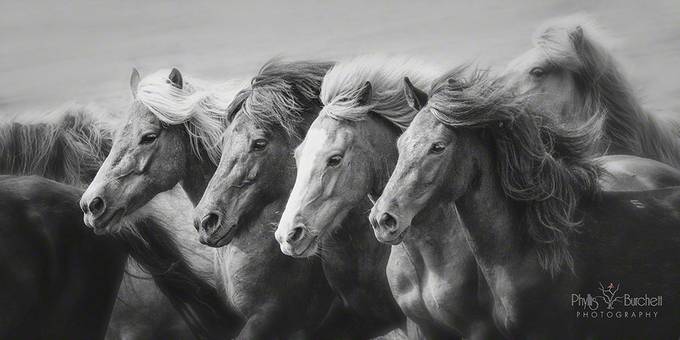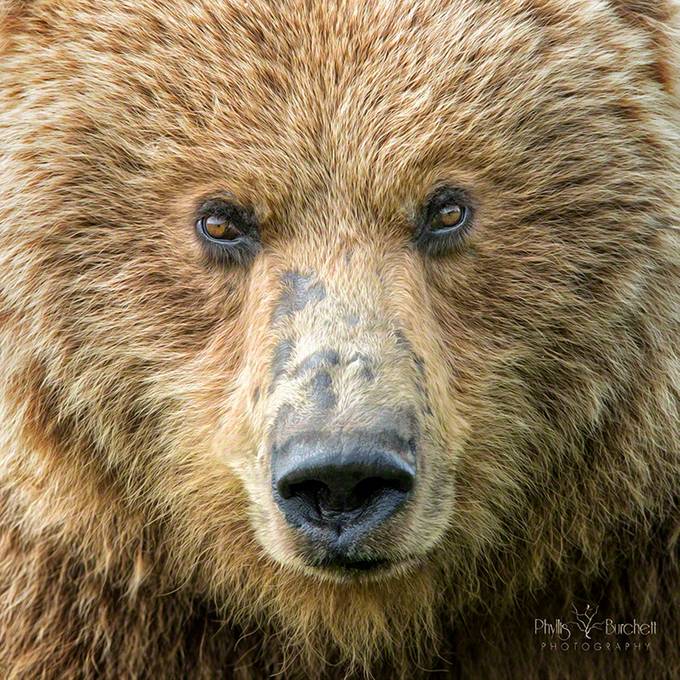It is clear that Phyllis Burchett (PhyllisBurchett) loves animals, especially horses. Her style is described as classic and intimate and Burchett wants to create an emotional connection between the photography and the person looking at her photos. Furthermore, Burchett is a professional photographer and her photography has been recognized in many venues and been published national magazines. Burchett is moreover a tour and workshop leader and a horsewoman and adventurer.
What inspired you to be a photographer?
I've always loved photography and art but in 2001 when we took a trip into the Canadian Rockies our guide had a Nikon SLR Camera and was documenting our trip. I was hooked, I came home and bought my first "real" camera.
What was your first camera and what do you shoot with today?
My first was the Nikon N90 35mm SLR Film Camera before going digital with the Nikon D70 in 2005. I currently own the Nikon D4, D810 and D7200.
When someone looks at your photos, what do you want them to take away from it, what are you trying to communicate?
An emotional connection that stirs the soul or inspires them in some way.
What is it that you love about photography?
It makes me see and look at things in a way I never did before. I love the community and friendships that I have formed over the years.
What has photography done for you?
It's given me a intense bond and connection with the world around me.
Do you try to be conceptual or do you prefer to show the feeling behind a photo?
I like both but prefer to show connection.
How do you describe your style?
Classic, Timeless and Intimate
If you had to choose one lens which one would it be and why?
The 70-200 F2.8 lens, because it's tack sharp, fast and produces beautiful bokeh.
What are your 3 tips for others who want to become better photographers?
1. Shoot what you love and are passionate about.
2. Step outside your comfort zone, the more you learn, the more knowledge you'll have to be able to apply in the future.
3. Get out and shoot (and then go shoot some more).
Have you received negative feedback from your work?
The first critique I received on my portfolio was at NANPA (North America Nature Photographers Assc.) several years ago. I was so proud and excited to show my work of close up shots of wildlife. The reviewer said "nice" but he would like to see more images of the animal in their environment.
What did you do about it?
I started shooting more environmental portraiture... Not only of wildlife but in my portrait work with people as well.
Where did you learn to take photos?
I would say I am self taught but have attended many workshops over the years and I credit each of those leaders as contributing to my success.
Raw vs jpg and why?
RAW... When you shoot in raw you record all of the data from the sensor, which gives me the highest quality file. I am able to do the processing myself and make decisions on how I want my images to look. In raw you have additional information in the file so it's easier to correct blown highlights or clipped shadows without reduction in quality. For any artist that prints their work this is a huge plus.
What do you carry in your camera bag?
I always carry two cameras and usually have a long lens on one body and a wide angle on the other. It's great to be able to capture intimate shots along with showing the subject in their environment.
If you could have the gift of a great photographer who would it be and why?
I think every photographer/artist would benefit from a week with Freeman Patterson. He will challenge your creative mind and empower you to express yourself in your photography like never before.
What is the most common mistake you see people making when shooting these days?
Being in a rush, not taking the time to observe their subject. Henri Cartier-Bresson once said, "People don't watch enough. They think. It's not the same thing."
What is your dream location to shoot?
I have so many it's hard to pinpoint just one but I would love to travel to Mongolia and experience the culture and beauty of their connection with horses.
How do you decide on where to shoot a photo?
Give me a location with stunning light and subject matter and I'm in. Sometimes we create our own magic light.
What is next for you? Any planned adventures with your camera?
There is always a lot going on for me. We are scouting for an upcoming equine workshop in Florida next week. Then I head to the coast of South Carolina for landscapes and Las Vegas for horses the first of December.
What is your goal with your photography?
Photography makes it possible for me to share my passion for life with others. My goal is to inspire others to get out and create their own memories.











